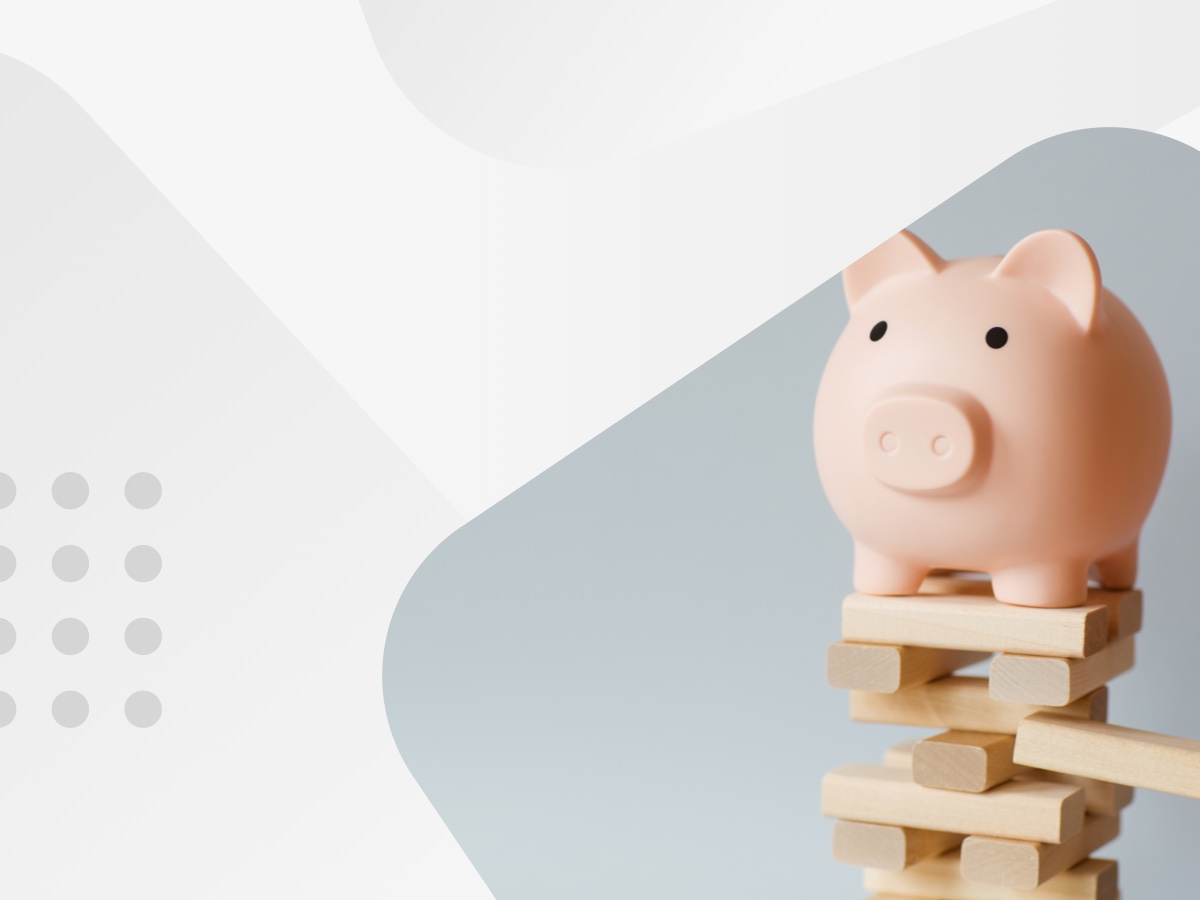
What happens in a recession in Australia?
Historically, an economic recession is declared once a country or state records two consecutive quarters of negative growth in Gross Domestic Product (GDP). This generally results in deteriorating economic fortunes for the general population, with potential consequences ranging from higher unemployment, and slowed wage growth, to rising inflation and higher household costs.
Budgeting and saving efficiently can help some families combat the effects of a recession, although some factors remain beyond their control.
What does a recession mean?
The definition of a recession has changed over time and between economists. The traditional view in the media is outlined above; a ‘technical recession’ is declared when two or more consecutive quarters (three-month periods) of negative GDP growth are recorded.
However, some economists argue that this definition is now outdated. The National Bureau of Economic Research (NBER) in the USA has redefined ‘recession’ to more broadly represent “a significant decline in economic activity that is spread across the economy and lasts more than a few months”.
They argue that there are proven instances wherein a country or state had meagre growth in GDP, but, despite this, the living conditions of the average citizen still deteriorated over a sustained period. Unlinking a recession from GDP growth allows it to be declared in these cases. This has social and economic utility, as a recession declaration highlights the urgency required from legislators and belt-tightening from families.
What happens during a recession?
A recession is usually declared retrospectively, as you can’t finalise the data from a quarter until the quarter has finished (and even then, it can be further revised).
There are some frequently observed hallmarks of a recession, although each downturn has its own characteristics. Also, not every economic slowdown is dramatic enough to warrant the declaration of a recession. Whichever definition you use, all refer to a sustained or severe reversal of economic fortunes.
When an economy is experiencing a recession, the following often occurs:
- Business activity slows. A recession generally accompanies a downturn in revenues, trading volumes and engagement for many businesses. Wary clients may be saving more and spending less, especially if inflation is a concern. As a result, instances of default and insolvency can rise, elevating the importance of credit-checking trading partners using tools such as CreditorWatch’s RiskScore.
- Household hardship increases. Whether due to soaring costs, devalued savings or employment hardships – household economic prospects dip for the average citizen during a recession. Many are forced to cut down on non-essential spending, allocating more to savings as a contingency plan. What happens to house prices in a recession? Typically, the value of all assets may decrease during periods of downturn.
- The employment rate can be affected. Not every recession is accompanied by a rise in the official unemployment rate, although it is a common symptom. With businesses experiencing a downturn in activity, many are liable to cut back on costs by terminating staff or reducing working hours. Interestingly, some research suggests that low unemployment can be a precursor to a recession, as business competition for workers can drive high inflation.
- Industrial production decreases. With a general decrease in business and consumer demand, a state or country’s net production rate can slow, especially for industries reliant on the local market for a high proportion of their revenues.
- Central bank policies can change. Depending on the causal factors, the Reserve Bank of Australia (RBA) may choose to lower interest rates to stimulate spending within the economy. However, during periods of ‘stagflation’, this may not be the case, as interest rates may be maintained at a high level to curb the inflation rate.
How a recession might happen
Recessions describe economic downturns – and economic downturns can be brought about by several different factors, including:
- International conflicts
- Poor monetary and fiscal policy decisions
- Rising inflation
- Banking or financial sector failures
- Housing or technology bubbles
- Environmental damage
According to data from the Australian Bureau of Statistics (ABS), Australia has experienced a recession six times since 1890, suggesting a frequency of one per 22 years approximately. However, three of those six recessions have occurred since 1980, indicating their frequency has increased.
1890’s Depression
After a resource boom, investors abandoned Australia before the fledgling nation could develop its own currency or financial stability. Production levels plummeted more rapidly than later experienced in the Great Depression, and wool prices collapsed. This event is said to have sparked the movement towards Australian Federation, as well as the formation of the Labor Party.
The Great Depression – 1930’s
Triggered by the October 1929 Stock Market Crash, inexperienced US Federal Reserve personnel, and global overproduction of goods – the Great Depression was a severe economic hurdle for many nations. It has been claimed that Australian unemployment at the time exceeded 30%. Despite this, economists have argued that Australia was a less affected nation during this international downturn.
The Recession of 1974–1975
In the middle of the 1970s, prices for raw materials and commodities spiked. Most notably, the oil price quadrupled within a short space of time. As a result, Australian business activity contracted. At the time, interest rates were maintained at 18%, leading to the phenomenon of ‘stagflation’ – whereby economic activity slows, but inflation and prices continue to increase.
The Recession of 1982–1983
Interest rates continued to surge during the early 1980s as Reserve Bank personnel looked to use monetary policy to try and curb international commodity price pressures and dampen demand. The impact on mortgage holdings was blunt and plunged the economy into recession in coordination with a severe period of drought.
The Recession of 1991–1992
According to Paul Keating, capital speculation and spending in Australia increased unsustainably during the early 90s, resulting in the “recession we had to have”. The interest rate rises at the time were a deliberate mechanism to cool off demand and investment, inflicting short-term hardship for long-term gain. Unemployment peaked at 11% during this period, after which the nation experienced sustained economic expansion for several years.
The COVID-19 Recession 2020
For two consecutive quarters in 2020 (Dec19 – Mar20, Apr20 – Jun20), the Australian economy witnessed negative growth in GDP, according to the Australian Bureau of Statistics. This has warranted the declaration of a ‘technical recession’, although there was an immediate bounce back in the next quarter. That early period in 2020 has been described as a ‘global recession’ due to the similar experiences of different nations.
Is a recession expected to hit Australia in the future?
Some reputable Australian banks and analysts have predicted that Australia will experience a technical recession in 2023, at least on a GDP per capita basis (describing a decrease in the general share of wealth for the general population). For those asking, “Are we currently in a recession?” – refer to official statements from the RBA and ABS.
Tips on how to survive a recession financially:
- Cut down on discretionary spending. With margins tightening, it’s critical that businesses and households alike cut expenditure down to the most necessary items. An important factor in surviving a recession is retaining money in the bank as a contingency fund, reducing spending can help create that buffer.
- Create a strict budget. Identify areas of financial waste or over-expenditure that may allow you to create additional savings without increasing income. You must have a transparent view of the numbers – on what is being spent and where. This is especially apt for those wondering how to survive a recession in retirement.
- Pay off debts before any interest rate increases. During high-interest rate periods, the interest on debt repayments can become an increasing impediment. If you can pay a loan or debt off sooner, you may avoid spikes in the applied rate. Additionally, if you can take advantage of features like an offset account, this may help to reduce the interest charged on your credit products. Doing so can assist in maintaining savings and avoiding unforeseen leaps in overheads.
- Credit check partner businesses. A recession often results in increased instances of business default and insolvency. To mitigate this, savvy business owners should leverage credit-checking tools, including RiskScore from CreditorWatch, to monitor trading partners’ payment capacity and debt risk.
- Pay bills on time. During a recession, a higher premium is placed on your creditworthiness and credit score during loan applications. You must pay all bills on time and prioritise positive credit payment behaviour to keep your credit scores high and retain your ability to apply for various products.
How to survive a recession in business
Navigating tough economic conditions requires heightened due diligence. When margins are slim, and overheads are high, you must be sure that those you trade with pay their bills on time and avoid insolvency. Protecting your cashflow is key to keeping any business afloat. In a recession, three key factors you can control are:
- Understand credit risk before you extend credit to new customers
- Monitor the ongoing creditworthiness of current customers.
- Don’t let overdue payments blow-out. Chase customers for payment, be the squeaky wheel to ensure you’re top of their list to get paid.
CreditorWatch’s credit reporting suite helps businesses make timely decisions based on real, recent data.
- RiskScore leverages over 11 million monthly tradelines from 55,000+ customers to help businesses monitor creditworthiness and potential risk in trading partners. Search any business via its ABN or ACN and get a credit score from 0-850. The higher the score, the more creditworthy that company is.
- DebtorLogic analysts your entire Aged Trial Balance to highlight any deteriorating payment behaviour or increasing risk. If vital information changes – the 24/7 Monitoring and Alerts system ensures you’re emailed immediately. With time and data on your side, you can take preventative action before it’s too late.
- CreditorWatch Collect automates your collections process from pre-reminders through to payment. Collect gets you paid faster and reduces the time spent chasing late payments.
Frequently Asked Questions
What happens to house prices in a recession?
Typically, most asset values decrease over the short term in a recession. However, the Australian housing market is buoyant over the long term and has historically recovered well.
What happens to interest rates in a recession?
It depends on the state of inflation at the time. If inflation is high: interest rates may remain high to curb spending and combat the surging prices. If inflation is low: interest rates may be lowered to stimulate spending.
What happens to prices in a recession/what happens to inflation in a recession?
Prices are related to inflation, which can be high or low during a recession – depending on the price pressures applied to businesses by their supply chain and other factors. As such, there’s no hard and fast rule relating to price movement during a recession. Some companies may increase prices if they have inelastic goods, while others may reduce them to stimulate demand.
What happens in a global recession?
A global recession usually occurs when international forces, such as the Russian war in Ukraine, cause ripple effects throughout various economies simultaneously. This can compound the effects felt by the general population in each nation, as international trade can otherwise provide a lifeline for economic growth during times of downturn.
What happens to EFTs in a recession?
With stock markets such as the ASX and NASDAQ generally contracting during times of recession, it can be assumed that the average ETF performance may slow or drop over the short-to-medium term. As always, the performance of an ETF depends significantly on its management and structure.
What happens to mortgage rates in a recession?
As mentioned above, mortgage rates are determined by the official cash rate, which is influenced by macroeconomic factors that include inflation. If the cash rate lowers to stimulate spending, mortgage holders may experience a reduction in repayments. Alternatively, if the cash rate rises to curb inflation: mortgage holders may see repayments increase.
What happens to car prices in a recession?
Asset values generally drop during a recession, as there is less net demand for items (especially luxury ones). Therefore, you may see a reduction in the value of owned vehicles, particularly if they are designer or luxury cars.
What usually happens to the stock market in a recession/what happens to share prices in a recession?
The stock market usually takes a hit, although it’s an impact it can recover from. Portfolio values typically drop during a recession in line with consumer sentiment. However, after each recession, the Australian Stock Market has eventually rebounded to a higher net value than previously registered.
What happens to real estate in a recession?
Real estate performance is not always linked to GDP trends. Because housing is seen as an essential good, some sections of the property market have proven to withstand a recession without values dropping significantly. However, for smaller housing markets or high-value properties, there may be a reduction in buyers with the necessary liquidity to make a purchase.
What happens to the price of gold in a recession?
Sometimes, if people are suspicious of the banks, there may be an increased buy-up of gold as it is considered a safer store of value. As such, during recessions, it is sometimes common to see the price of gold increase.
What happens to crypto in a recession?
Limited research exists on any clearly established relationship between crypto holdings and recession. Because they are more speculative by nature, some holders may sell off crypto assets during hard economic periods to mitigate the risk of rapid devaluation.

Get started with CreditorWatch today
Take your credit management to the next level with a 14-day free trial.

